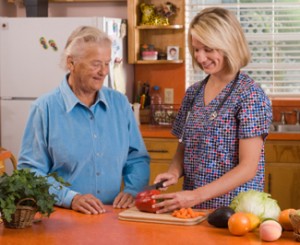In the health and social care industry, the senior care workers play an important role. Their main job is to ensure the dignity of their clients at all times. Their basic responsibility is to help the seniors in their everyday lives. Senior care is indeed a noble job because workers look after the elderly.
Elderly people nowadays are in need of professionals that can assist them properly. Many elder folks prefer to have an assistant to help them in their daily activities. They deserve to have a comfortable and pleasurable life during their senior stage.
Senior care workers often work in private homes to help the patients with their daily tasks, such as personal grooming and meal preparations. They should be strong and physically fit because they often help their patients get out of bed or lift and turn bed-ridden patients to prevent bedsores. They are not only helping their patients physically but also emotionally because most elderly people need to have a companion to talk with. Patients need feel that they are important and that there is someone willing to listen to their problems.
Senior care workers can also play recreational games with their patients, such as card and board games, in order to keep their patients mentally active and attentive. Even sitting with patients at the backyard while chatting with them can be very beneficial.
Senior care workers should be passionate and dedicated toward their jobs. Aside from that, it is also a physically and emotionally demanding job. But workers can still get satisfaction in caring for the seniors because it is gratifying to offer service to the elderly. It is true that it is not an easy task but many people are choosing this type of career because of their love to serve other people.


